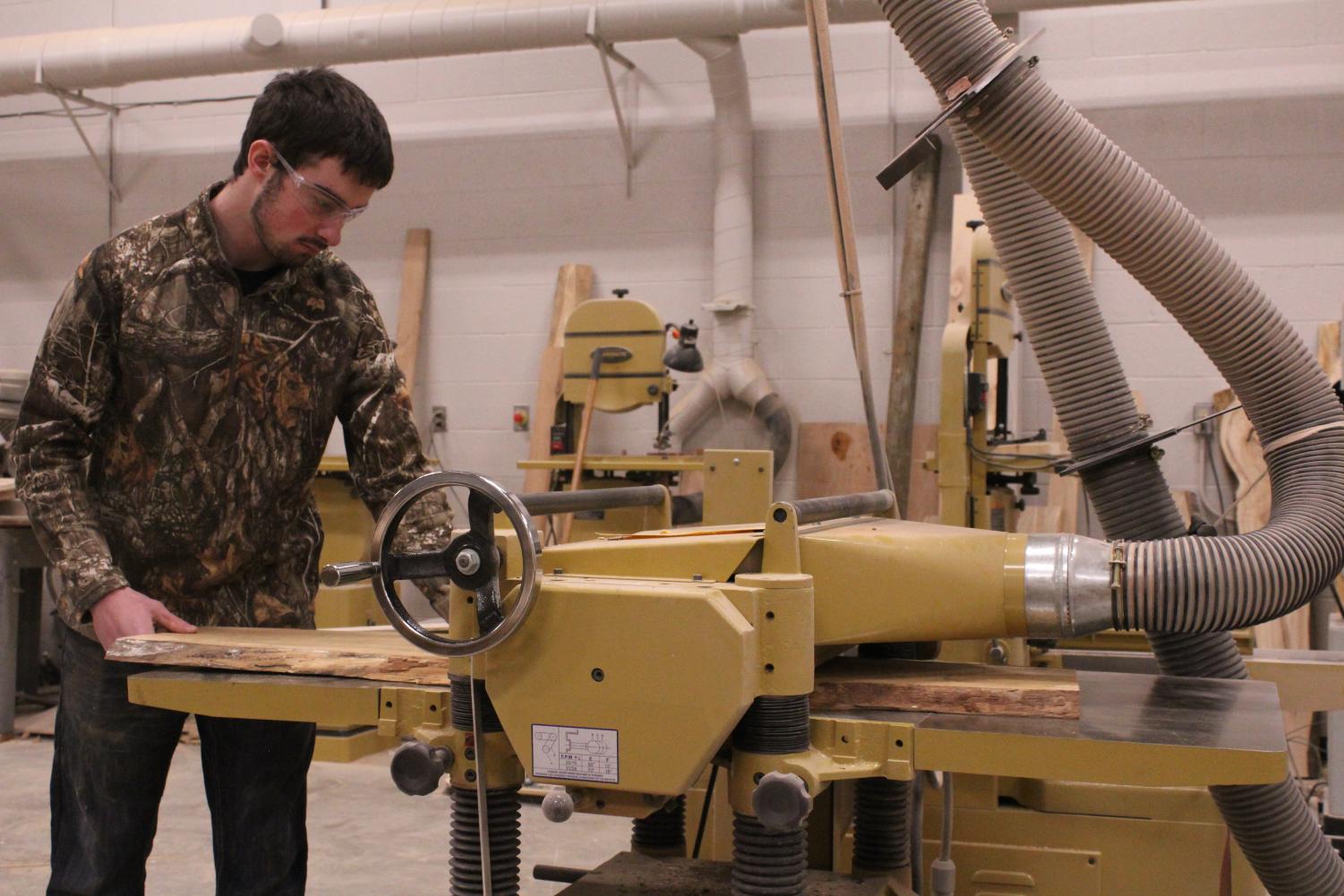Trade schools: A great alternative to college
May 21, 2018
An upperclassman can not go a single week without being told to think about college. With all the demand for college, high schoolers would feel like there are no other options to become a functioning member of society: however, there is another option: trade schools.
College is expensive, and it has only been on the rise. According to Business Insider, college costs have risen by 260 percent from 1980 to 2014, and it doesn’t look like it is going to stop.
Going to a trade school costs less than college, and graduates will have smaller loans than a college student.
According to Career School Now, trade school graduates usually have loans around only $10,000 compared to a university student’s $37,000.
“Benefits of a union trade school is that you actually go to work while you are going to school and you get paid a wage,” Ann Arbor Electrical Training Director John Salyer said. “You can get a job anywhere in the country once you have the training and the license, and you’re getting college-level training and credits.”
Higher education has been made to seem as the only way to have a stable, high paying income, and without a college career, finding a well-paying job will be difficult.
As employers find themselves without skilled workers, this myth is being debunked by educational experts like Career School Now, a education portal for trades and vocational schooling who find the median salary for someone starting a trade is $35,720—only $11,000 less than the average bachelor degree holder starting a career.
A major reason that students do not choose the trades is because they are not really talked about.
However, students need to know they are available and there are people who can help. Aminah Lott, a college adviser, thinks the first step is being a good student.
“Arrive on time to school every day. Attend all of your classes. Get good grades and do well on the SAT,” Lott said. “All of these things tell future mentors and employers that you take your job as a student seriously.”
Prospective trade school candidates can put themselves in an advantage by taking certain classes in high school.
“You can even expedite the process further if you have prior experience in skilled trades like you would get here in wood working class or at the career center,” Lott said.
There are multiple types of trade schools for many careers ranging from cosmetology and nail tech to machining and welding.
“In our country right now, we are actually losing tradesmen, so we don’t have a whole generation of people that know how to do the stuff that trades teachers like me are teaching,” woodworking teacher Wesley Perry said. “And a trade school is a good option compared to college because you can still go get some type of certificate or degree in a trade; and then after you get trained, then you go get a job outside of it making good money.”
Senior Stephen Gipson has chosen trade school, not because of the expensive price tag on college, but rather because he thinks college is not the right environment for him.
“I don’t want to take all the English and math; I’m more hands-on,” Gipson said. “I just want to get right to work.”
But just because trade school is an option, does not mean it is for everyone.
Lott believes it is important to “weigh the possible determinants of going to a trade school instead of college for a full perspective,” instead of just settling on trade school because they do not feel they would succeed in college or that college is not right for them.
“There are also multiple routes to learning a trade,” Lott said. “Students do not have to settle on trade school. Someone could pursue trades through an apprenticeship or get a trade certification at community college.”


Lloyd Bronson • Aug 14, 2019 at 11:40 am
I agree that when it comes down to it, college is not for everyone, especially those who wish to take up a job in a trade. The stigma that anything but traditional college is a pursuit that is not worth it is a biased notion that seeks to punish those who want to pursue a trade instead of a degree. As someone who wants to pursue a trade in the future, I believe that trade school would be a far better fit for me compared to traditional post-high school education. https://www.ptt.edu/programs/welding